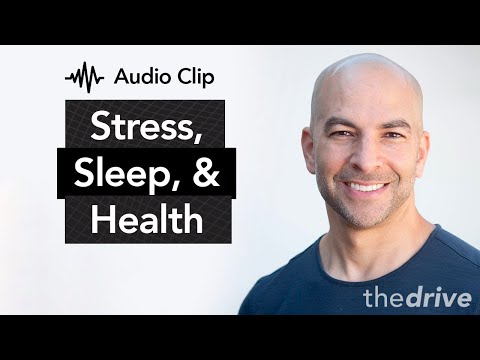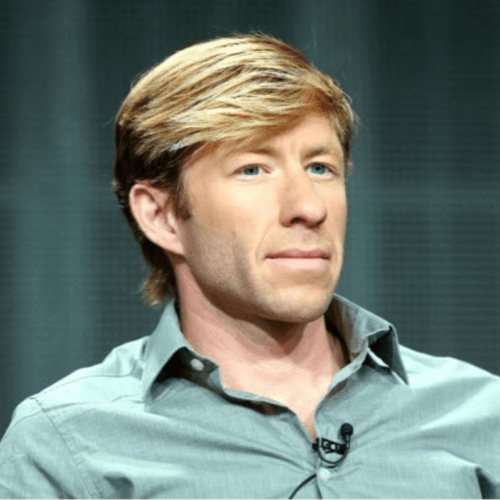Check out more content with sleep expert, Matthew Walker, Ph.D.:
- (April 1, 2019) Part I of III: Dangers of poor sleep, Alzheimer’s risk, mental health, and memory
- (April 8, 2019) Part II of III: Heart disease, cancer, sexual function, and sleep disruption
- (April 15, 2019) Part III of III: The penetrating effects of poor sleep from metabolism to genetics
- (June 17, 2019) AMA #1: Strategies for sleeping more and sleeping better
- (October 28, 2019) AMA #2: short sleep mutants, optimal sleep environment, & sleep apnea
- (August 31, 2020) Sleep & Covid-19: Sleep and immune function, chronotypes, and hygiene tips
- (September 7, 2020) AMA #3: Fasting, gut health, blue light, caffeine, REM sleep, and more
In the first three parts of our series with sleep expert Matthew Walker, Matt revealed the many reasons why we need sleep as well as the many short- and long-term dangers of not sleeping enough. In this special AMA episode, Matt comes back to provide a dissertation on listener’s questions about HOW to sleep. He answers questions from subscribers that largely focus on the practical and tactical ways we can improve our sleep in terms of duration, quality, consistency, and avoidance of the common things that are standing in the way the best sleep possible.
If you’re a subscriber, you can now listen to this full episode on your private RSS feed. If you are not a subscriber, you can learn more about the subscriber benefits here.
AMA Sneak Peak:

We discuss:
- Matthew’s TED Talk, and his favorite public speakers [3:40];
- How good are the current sleep trackers like Oura, Fitbit, etc.? [6:45];
- Is it bad to eat food too close to bedtime? [11:40];
- How does exercise impact sleep? [13:15];
- How is appetite affected by our sleep quality? [17:30];
- Anxiety, cortisol, and weight gain: An awful feedback loop of sleep deprivation [19:30];
- How to optimize your wind down routine: lights, temperature, & relaxation [22:10];
- How alcohol disrupts sleep (and contributes to Alzheimer’s disease) [42:00];
- Sleep’s impact on sex hormones, and romantic relationships [46:00];
- Performance, accuracy, and minimizing the damage of shift work [51:30];
- Bed partners: How to sleep in separate beds and retain a good relationship [55:30];
- Can we use sound machines and electrical stimulation to improve sleep? [57:40];
- Will we ever be able to “supercharge” our sleep stages using technology? [1:03:30];
- Why sleep is the best insurance policy for lifespan and healthspan [1:07:45];
- Melatonin: How (and how not) to use it for sleep improvement [1:15:00];
- The dangers of sleeping pills, useful alternatives, and cognitive behavioral therapy for insomnia [1:24:30];
- Can CBD and THC be used for sleep? [1:39:30];
- Why haven’t we been able to develop a really effective sleeping aid? [1:46:40];
- Can you get too much sleep? [1:51:50];
- What to do (and not do) immediately following a terrible night of sleep? [2:04:15];
- Why a consistent wake up time is king [2:10:30];
- Does poor sleep speed up the aging process? [2:12:00];
- Can different people be more (or less) resilient to sleep deprivation? [2:18:50];
- Finding your optimal sleep schedule and determining your sleep chronotype [2:23:45];
- Defining sleep efficiency and how to improve it [2:29:25];
- Correcting insomnia: A counterintuitive approach [2:31:45];
- How can parents improve the sleep of their kids? [2:37:30]; and
- More.
SPECIAL ANNOUNCEMENT: Based on your feedback, we are excited to announce the launch of our exclusive, members-only podcast feed. This allows subscribers to listen to every episode of The Drive without the subscriber callout, plus full episodes of our members-only AMA podcasts, and other exclusive content directly in your podcast player. Learn how to get set up with a couple of taps here: (be sure that you are logged in).
Get Peter’s expertise in your inbox 100% free.
Sign up to receive An Introductory Guide to Longevity by Peter Attia, weekly longevity-focused articles, and new podcast announcements.
Matthew’s TED Talk, and his favorite public speakers [3:40]
Matthew recently gave a TED Talk: Sleep is your superpower
Matthew’s favorite speakers:
“They transcend being an exquisite public speaker into being someone who is just so compelling because they add to this sprinkle layer on top called wonderment.”
How good are the current sleep trackers like Oura, Fitbit, etc.? [6:45]
What can the common sleep trackers tell us about sleep?
- Best at: Estimating total duration of sleep (Two-class model)
- Pretty good at: Determining where you’re in awake, non-REM, and REM (Three-class model)
- Least accurate when: Estimating your time split between 4 stages… awake, light non-REM, deep non-REM, and REM (Four-class model)
⇒ Matthew says don’t fret: “I wouldn’t get too nervous about some of your sort of deep sleep versus light sleep numbers. Some of them could be accurate within an individual, but for others it can be more tricky because of their physiology that’s not giving the right signals for class accuracy.”
Trend lines and relative changes are more important
- Once you establish some kind of baseline and you see a deviation from that baseline, it’s more than likely that that deviation is a real deviation rather than a problem of the technology because the technology, even though it’s errorful is consistently errorful night after night after night
- So any variance from your baseline is where you want to focus more of your attention
- Trendlines: Matthew advises to pay most attention to your weekly trend lines when using a sleep tracker
The Oura ring
- Peter uses (and is an investor and advisor) the Oura ring
- He says that the Oura ring is also very good at measuring and tracking:
- Resting heart rate while sleeping
- Heart rate variability
- Body temperature
- Movement
⇒ More regarding heart rate
Peter: “When your resting heart rate is up seven beats per minute and your heart rate variability is down 20%… those are bad things.”
What can cause these heart rate issues?
- For Peter at least… it is typically:
- The room was boiling hot
- Ate a monster meal 10 minutes before bed
- He had two alcoholic drinks or more
- Jet lag
Is it bad to eat food too close to bedtime? [11:40]
{end of show notes preview…}
Would you like access to extensive show notes and references for this podcast (and more)?
Check out this post to see an example of what the substantial show notes look like. Become a member today to get access.

Matthew Walker Ph.D.
Dr. Walker earned his degree in neuroscience from Nottingham University, UK, and his PhD in neurophysiology from the Medical Research Council, London, UK. He subsequently became a Professor of Psychiatry at Harvard Medical School, USA. Currently, he is Professor of Neuroscience and Psychology at the University of California, Berkeley, USA. He is also the founder and director of the Center for Human Sleep Science.
Dr. Walker’s research examines the impact of sleep on human health and disease. He has received numerous funding awards from the National Science Foundation and the National Institutes of Health, and is a Kavli Fellow of the National Academy of Sciences.
Dr. Walker is the author of the International Bestseller, Why We Sleep. It has a singular goal: to reunite humanity with sleep.
In addition, Dr. Walker is an internationally recognized speaker, a successful entrepreneur, and a Sleep Scientist for Google.
[sleepdiplomat.com]
Twitter: @sleepdiplomat
Center for Human Sleep Science: https://www.humansleepscience.com/
Matthew’s publications: https://www.humansleepscience.com/p-u-b-l-i-c-a-t-i-o-n-s



